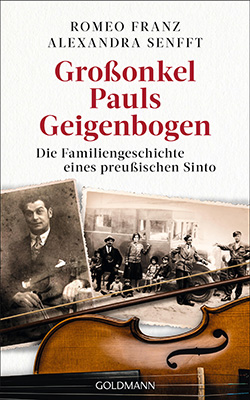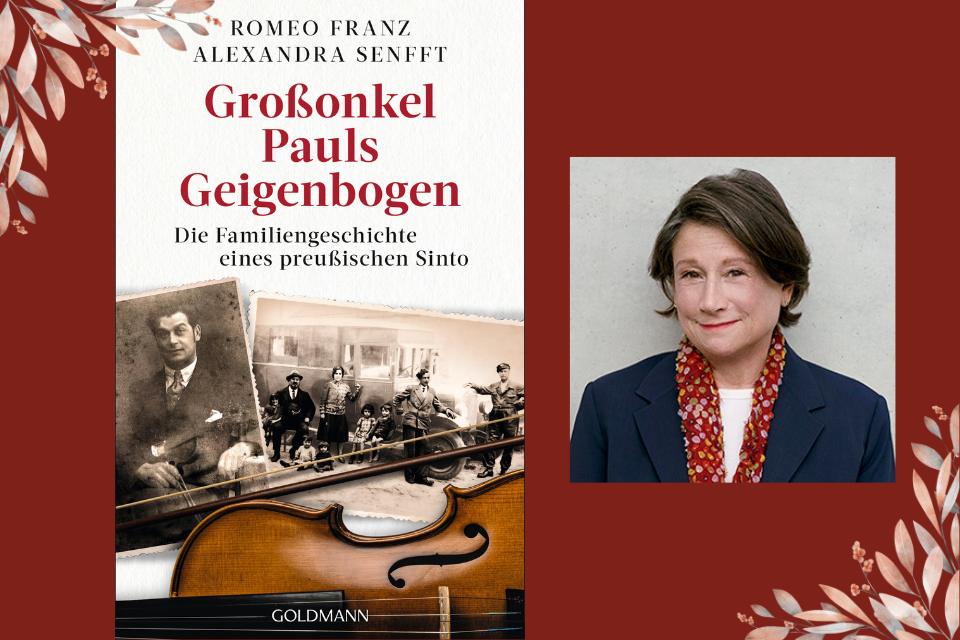Mare Manuschenge. Sinti and Roma: A century between persecution, resistance and self-empowerment
About the Event
 Romani people have been discriminated against and persecuted ever since their first documented appearance in Europe in the 15th century. Their victimization culminated in the Nazi genocide: Hundreds of thousands of European Sinti and Roma were disenfranchised, detained, tortured, sterilized and murdered. After 1945, the survivors were hardly compensated for their suffering or their human and material losses. Instead, they were again criminalized and are marginalized to this day. Only in 1982 did the German government officially recognize the genocide and its responsibility for the persecution of the largest minority in Europe. Still, Sinti and Roma are treated as second class victims in the commemoration of the Nazi crimes. In spite of the fact that they are a recognized minority in Germany, they are confronted with anti-Romani racism which is deeply engrained in the society, mostly passed on by intergenerational transmissions that are rarely reflected upon.
Romani people have been discriminated against and persecuted ever since their first documented appearance in Europe in the 15th century. Their victimization culminated in the Nazi genocide: Hundreds of thousands of European Sinti and Roma were disenfranchised, detained, tortured, sterilized and murdered. After 1945, the survivors were hardly compensated for their suffering or their human and material losses. Instead, they were again criminalized and are marginalized to this day. Only in 1982 did the German government officially recognize the genocide and its responsibility for the persecution of the largest minority in Europe. Still, Sinti and Roma are treated as second class victims in the commemoration of the Nazi crimes. In spite of the fact that they are a recognized minority in Germany, they are confronted with anti-Romani racism which is deeply engrained in the society, mostly passed on by intergenerational transmissions that are rarely reflected upon.
In her talk, Alexandra Senfft spoke about the persecution and discrimination of the Sinti and Roma, but also highlighted their resistance and resilience as well as their self-empowerment. Her material is based on the family history of the German Sinto Romeo Franz. Franz, who identifies as a Prussian Sinto, is a well know musician of Sinti-jazz and was the only German Sinto ever voted into the European parliament. With his music and is civil rights activism, he continues family traditions of culture and resistance which can traced back to Berlin at the beginning of the 20th century.
About the Speaker
 © Pascal Bünning
© Pascal Bünning
Alexandra Senfft, M. A. Middle Eastern Studies, was born 1961 in Hamburg, is a German book author and freelance journalist for German and international media.
She specializes in the intergenerational consequences of the Holocaust, the legacy of Nazi persecution in German society as well as in dialogues between the descendants of the persecutors and the persecuted. Her areas of focus
include Sinti and Roma (Romani people), Palestine and Israel, flight and migration, antisemitism, anti-Muslim resentment and anti-Roma racism. In 2007, Alexandra Senfft published her family history »Silence hurts« about her Nazi grandfather, executed as war criminal; in 2016 her book »The Long Shadow of the Perpetrators. Descendants face the Nazi family« appeared. She co-edited »Between antisemitism and islamophobia – prejudices and projections in Europe and the Middle East« (2008) with John Bunzl. In »Strange enemy, so close« (2009) she portrays Israelis and Palestinians in dialogues. In March 2024 her book »Great uncle Paul’s Violin Bow« with her co-author Romeo Franz was published. Franz is a Sinto musician and a Romani civil rights activist. The new book reconstructs his Prussian Romani family history, narrates his own life and is at the same time a small historical account of the Sinti and Roma since the end of the 19th century.
Alexandra Senfft is the vice-chair of the Study Group on Intergenerational consequences of the Holocaust, PAKH.de, she is also on the board of the Dachau Camp Community in Munich and a member of PEN Berlin. She has two children and lives in Germany and Greece.
For more see https://alexandra-senfft.de
